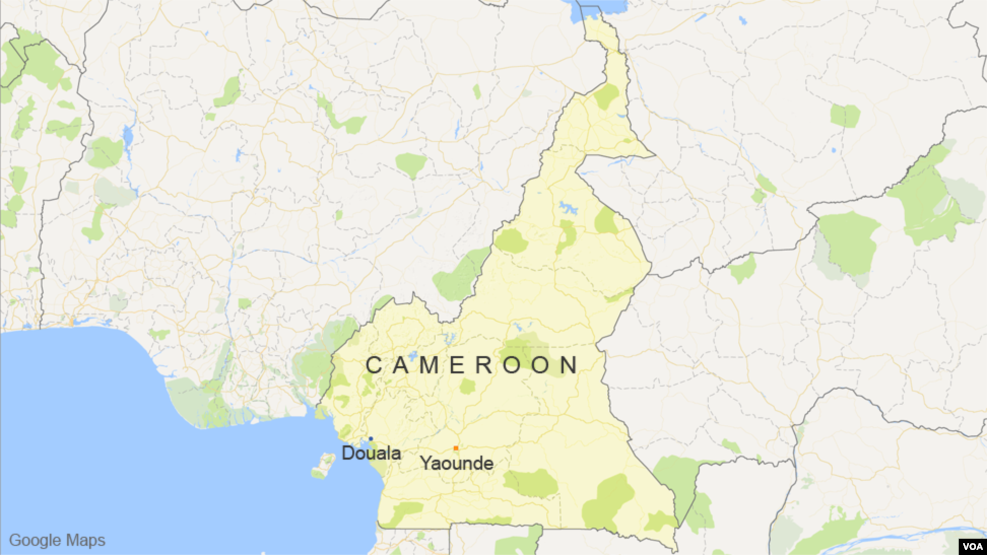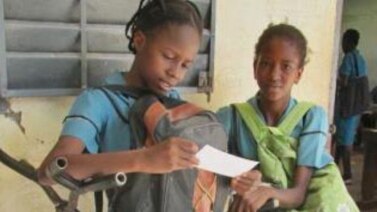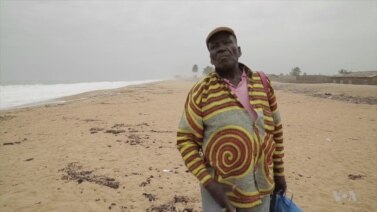
There have been violent incidents in Cameroon this past week. Police have clashed with striking lawyers.
More than 1,000 lawyers in English-speaking parts of the country are on strike. They are angry about the widespread use of the French language in the court system.
The lawyers are refusing to work until the government acts to reduce the use of French in the courts.
The English-speaking lawyers are angry that police used tear gas and force to stop them from peacefully marching in Bamenda, the capital of northwest Cameroon. Police have also taken action against protesting lawyers in several other towns.
Harmony Bogda is a lawyer and was one of the organizers of the protest. He says the lawyers want all French-speaking judges who cannot speak, write or understand the English language removed from courts in English-speaking areas.
Bogda says that people cannot receive justice when court officials are unable to communicate with one another.
“We are gentlemen. We are peaceful and we have never meant any violence. It is now more than a month that we have been on strike after having notified the government about our dissatisfaction with the erosion of the common law.”
But the government says it cannot discriminate based on language when filling positions in the court system. Most English-speaking lawyers can communicate in French, but many French-speaking lawyers have trouble communicating in English.
Cameroon has two official languages -- English and French.
About one in five Cameroonians speak English. The southwest and northwest parts of the country were once under British colonial rule.
Cameroon also recognizes two legal systems. One is based on French civil law, while the other is based on English common law.
But the striking lawyers say some laws are giving the French system more power. About 20 years ago Cameroon and 16 other African countries where French is spoken signed a treaty. The agreement is aimed at increasing investment in those nations by making their business laws similar.
Cameroon's government says a group is working on making an English language version of the treaty. State media reports that the government has asked the striking lawyers to be patient while the work is completed. But the lawyers want more than just an English version of the treaty.
Ashu Nyenty researches international law.
“They have called for the creation of a separate chamber for common law (at) the supreme court of the country. Since independence in 1960, that court has had only French-speaking chief justices even though the country is bilingual. They are also asking for the creation of a separate section for common law in the national institution that trains magistrates and judges in the country. The curricula of that school are essentially modeled in the French civil law system and so the lawyers see that as a problem.”
The lawyers' strike is part of what some observers see as a larger problem -- many people are worried that the French language is starting to make English disappear from public life in the country.
Cameroon's constitution says the two languages are equal, but many official documents are written only in French. This has caused English-speaking lawyers, lawmakers and teachers to protest and threaten to strike.
I'm John Russell.
Moki Edwin Kindzeka reported this story from Cameroon. Christopher Jones-Cruise adapted his report for Learning English. George Grow was the editor.
We want to hear from you. Write to us in the Comments Section, or visit our Facebook page.
Words in This Story
erosion - n. the gradual destruction of something
civil law - n. laws that deal with the rights of people rather than with crimes
common law - n. laws that developed from court decisions and customs and that form the basis of laws and legal systems
chamber - n. part of a court or justice system
bilingual - adj. able to speak and understand two languages
magistrate - n. a local official who has some of the powers of a judge
curricula - n. the courses that are taught by a school, college, etc.

